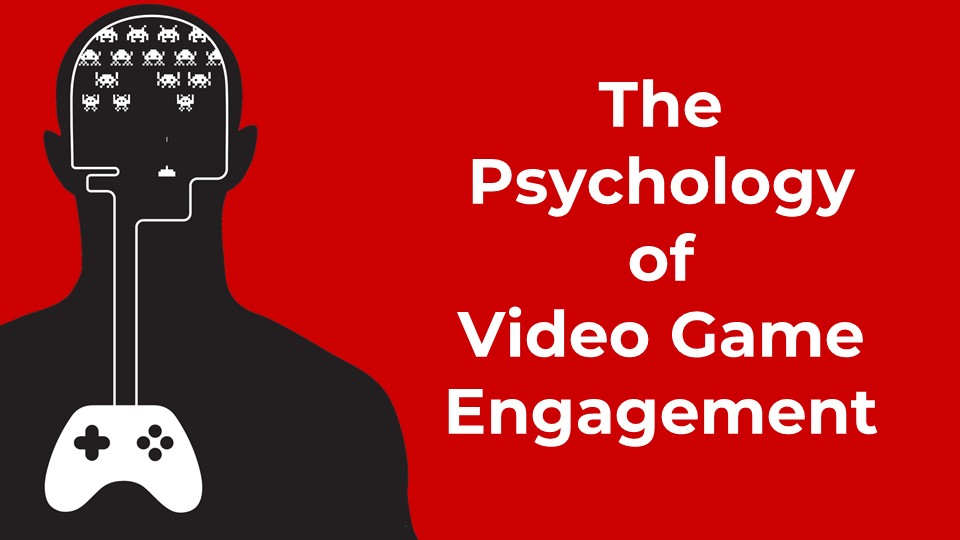
Table of Contents
Introduction
In today’s digital age, where technology intertwines with our daily lives, the realm of has blossomed into a vast and captivating industry, attracting millions of enthusiasts worldwide. However, concealed beneath the surface of this seemingly innocuous source of entertainment lies a intricate and concerning phenomenon addiction. This article delves profoundly into the psychology of gaming addiction, comprehensively exploring its underlying causes, far-reaching effects, and potential avenues of mitigation.
Understanding Gaming Addiction
What is Gaming Addiction?
Gaming addiction, alternately referred to as “video game addiction” or “gaming disorder,” is characterized by an individual’s irresistible compulsion to engage excessively with video games, often resulting in the neglect of crucial facets of life such as work, education, relationships, and even personal well-being.
The Seduction of Escapism
A pivotal factor fueling addiction is the allure of escapism that virtual worlds provide. Video games offer an immersive experience, granting players a temporary reprieve from real-world stressors. However, this seemingly harmless escape can inadvertently spiral into a self-perpetuating cycle, with players frequently seeking refuge in the virtual realm.
The Intricacies of Gaming Addiction’s Psychology
The Role of Reward Systems and Dopamine
The bedrock of addiction is intricately tied to the brain’s reward system. Engaging in video games triggers the release of dopamine, a neurotransmitter synonymous with pleasure and reinforcement. This surge of dopamine creates an intensely pleasurable sensation, motivating players to relentlessly pursue the same gratification, thereby fostering addictive behaviors.
The Quest for Accomplishment
Video games often provide a structured environment where achievements are meticulously defined and generously rewarded. This dynamic can be particularly potent for individuals grappling with real-life challenges, as virtual accomplishments can serve as a surrogate for genuine achievement, amplifying the allure and entrenching the addiction further.
Factors Underpinning Gaming Addiction
Social Interaction and Virtual Bonds
The realm of online multiplayer games engenders a profound sense of community and connection, filling potential voids in offline relationships. As players establish friendships and forge virtual bonds within the sphere, the desire to remain engaged in these interactions can drive excessive gameplay, fostering addiction.
The Power of Personalization and Progression
Modern games often offer an array of customization and progression features, enabling players to tailor their avatars and advance through various levels. This sense of personal investment and advancement can create a potent emotional attachment, making it challenging for players to detach from the game and inadvertently cultivating addiction.
The Far-Reaching Consequences of Gaming Addiction
Impairment of Real-Life Functionality
Addiction exacts a toll on an individual’s real-world responsibilities. Neglecting education, employment, and social obligations can lead to underperformance academically and professionally, strained relationships, and eventual isolation.
Physical and Mental Well-being Ramifications
Excessive can contribute to a sedentary lifestyle, ushering in a host of physical health issues, including obesity and musculoskeletal disorders. Moreover, the emotional intensity of experiences, coupled with subsequent emotional crashes, can take a toll on mental well-being, potentially catalyzing anxiety, depression, and mood fluctuations.
Navigating Solutions and Seeking Support
Acknowledging the Predicament
The first step towards conquering gaming addiction is acknowledging its presence. Developing self-awareness and recognizing the negative repercussions of excessive gaming are pivotal prerequisites for embarking on the journey of recovery.
Forging Healthy Boundaries
Cultivating a balanced gaming routine necessitates the establishment of well-defined time limits and allocating time for alternative activities. Striking a harmony between virtual engagements and real-world pursuits is indispensable for breaking the shackles of addiction.
Professional Intervention
In instances of severe gaming addiction, seeking professional guidance from therapists or counselors specializing in addiction can offer indispensable strategies and insights to surmount the challenge.
Conclusion
Gaming addiction stands as a multidimensional interplay of psychological triggers and environmental dynamics, ensnaring individuals in an intricate web of virtual dependence. By delving into the psychological mechanisms underpinning gaming addiction and embracing proactive measures, individuals can reclaim agency over their lives, thereby cultivating a harmonious equilibrium between the virtual realm and tangible reality.
FAQs About Gaming Addiction
- Is gaming addiction solely prevalent among the younger demographic? Gaming addiction transcends age boundaries; however, younger individuals might be more susceptible due to their familiarity with technology and digital environments.
- Can gaming addiction lead to criminal behavior? While gaming addiction itself might not directly incite criminal behavior, the neglect of real-life responsibilities could potentially result in legal consequences.
- Do all video games possess equal addictive potential? Video games vary in their addictive potential, with certain genres, especially those offering in-game rewards and social interactions, holding a heightened propensity for addiction.
- Is complete abstinence the only viable solution to gaming addiction? Absolute abstinence might not be the sole recourse. Learning to establish healthy boundaries and recalibrating priorities can serve as effective strategies to manage gaming habits.
- Can gaming addiction be permanently eradicated? With the right blend of strategies, support, and self-discipline, gaming addiction can be effectively managed, enabling individuals to regain control over their lives.


Very-well nice contained